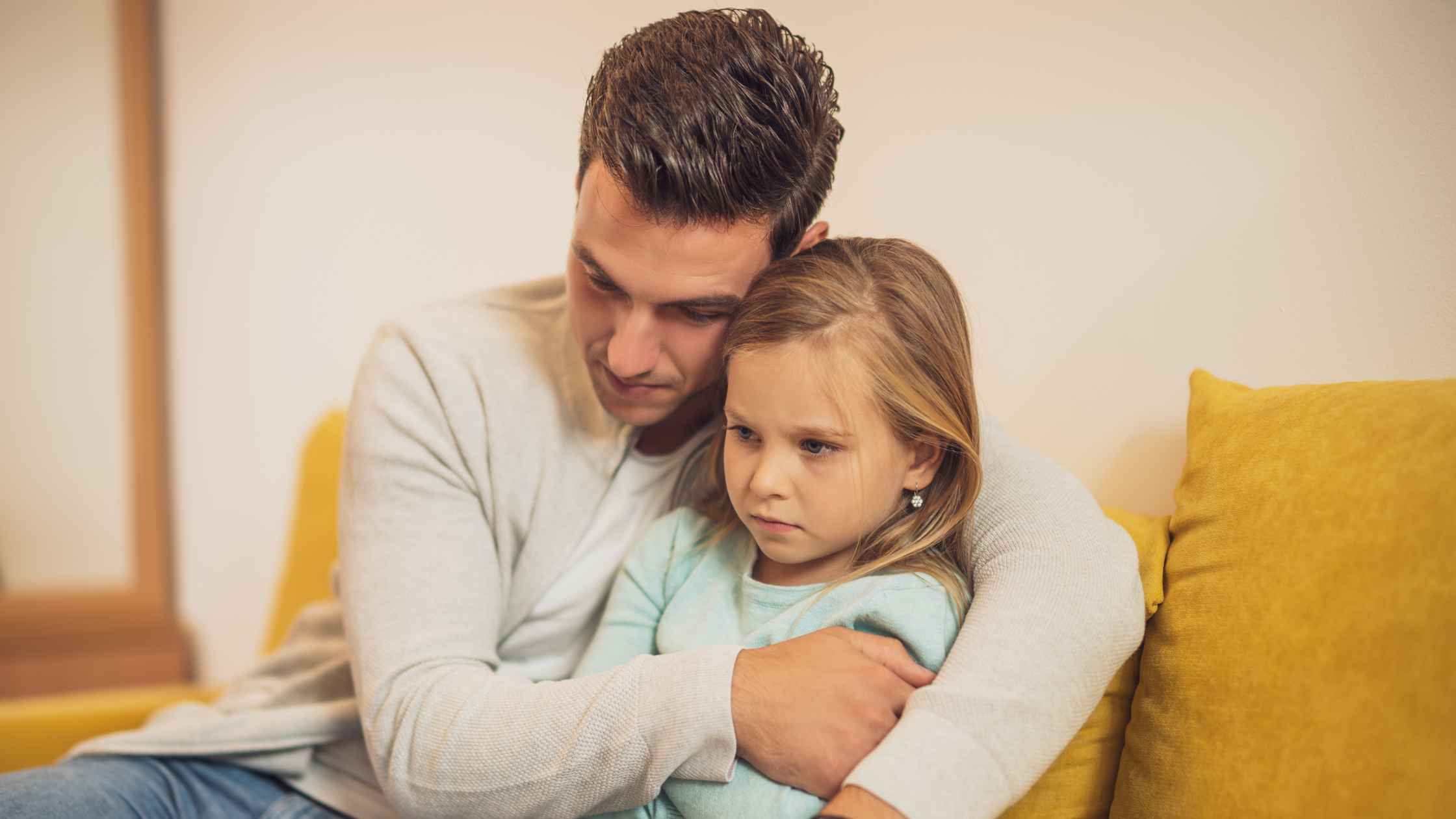As parents, we all want to raise respectful, well-behaved children who can handle their emotions in a healthy way.
But sometimes, despite our best intentions, we may be unknowingly triggering our child’s anger and setting them up for frustration and outbursts.
In this article, we’ll explore five common ways parents can provoke their kids to anger without even realizing it, and what we can do instead to foster a calmer, more peaceful home environment.
1. Inconsistent Boundaries and Limits

One day jumping on the couch is totally fine, the next day it’s completely off-limits. Sound familiar? Inconsistent boundaries and limits are one of the most common ways parents accidentally trigger their child’s anger.
When the rules keep changing, it’s confusing and upsetting for kids. They don’t know what to expect and can feel like they’re being set up to fail.
As Ephesians 6:4 says, “Fathers, do not provoke your children to anger, but bring them up in the discipline and instruction of the Lord.”
To avoid provoking our kids, we need to let our yes be yes and our no be no. That doesn’t mean we can never change our minds or adjust the rules based on the situation.
But when we do, it’s important to acknowledge how confusing it can be for our kids and support them through the transition.
For example, if you usually don’t allow jumping on the couch but decide to make an exception, point it out to your child.
You could say something like, “I know we usually have a rule against jumping on the furniture, but since it’s raining and we can’t go to the park like we planned, I’m going to let you bounce around for a bit as a special treat.”
This helps them understand the reason for the change and avoids leaving them feeling confused and frustrated.
2. Harsh Tone and Aggressive Energy

It’s not always what you say, but how you say it. As parents, we set the emotional tone for our homes.
When we communicate with our kids using a harsh, aggressive tone, it can quickly escalate the situation and trigger an angry response.
I know I’m definitely guilty of this sometimes, especially when I’m stressed or having a rough day myself. But the truth is, our children are deeply affected by our energy and nonverbal communication. If we want calmer kids, we need to be calmer parents.
That doesn’t mean we have to be perfect or never feel frustrated. But it does mean being mindful of our tone and making an effort to communicate with kindness and respect, even when correcting misbehavior.
Oftentimes a gentle reminder is just as effective as a sharp rebuke, and much less likely to provoke an angry outburst.
3. Asking Questions When Kids Really Need Direction

“Can you please put your shoes on?” “Do you want to clean up your toys now?” If you’re in the habit of phrasing directives as questions, you may be accidentally setting your child up for a power struggle.
When we ask a question like “Can you go take out the trash?” it leaves room for our kids to say no. And when they do, we often get frustrated because we interpret their refusal as defiance and disrespect.
But the truth is, by asking a question instead of giving a clear instruction, we invited them to express their opinion.
To avoid this trigger, try to give simple, direct commands when you need your child to do something. “Please take the trash out” is clear and to the point, making it less likely your child will respond with backtalk or anger.
Save the questions for when you’re truly offering a choice, like “Would you like an apple or crackers for snack?”
4. Taking Sides in Sibling Squabbles

Got more than one kid? Then you’re probably no stranger to the joys of sibling rivalry.
When our kids are fighting with each other, it’s tempting to jump in and play referee. We want to support the child we think has been wronged and make sure everyone is being treated fairly.
But always taking sides in sibling disagreements is a surefire way to breed resentment and continue the cycle of anger and conflict.
It sets up a “me vs. you” dynamic and discourages our kids from learning to solve problems on their own.
As parents, our role is to be coaches, not referees. Instead of deciding who is right and who is wrong, focus on giving each child a chance to express their feelings and perspective.
Guide them in taking responsibility for their part in the conflict and coming up with solutions together.
Maybe that means setting a timer and giving each child a chance to play with a toy for 5 minutes before trading. Maybe it’s helping them find the right words to express their anger and frustration in a calm way.
By teaching our kids conflict resolution skills, we empower them to navigate disagreements without exploding in anger.
5. Missing the Meaning Behind the Misbehavior

It’s so easy to get focused on our kids’ challenging behaviors that we completely overlook the message behind them. Backtalk, defiance, tantrums – these are all surface-level symptoms of a deeper need.
Many parents (myself included) make the mistake of rushing to punish anger-fueled misbehavior without considering what might be causing it.
Is our child feeling disconnected from us and craving one-on-one attention? Are they overtired from a busy week? Did something happen at school that’s weighing on them?
When we focus only on squashing the angry outbursts, we miss an opportunity to meet our child’s underlying emotional need.
And an unmet need will continue to trigger misbehavior and big feelings, no matter how consistently we dole out consequences.
This doesn’t mean we have to be perfect parents who are always exquisitely attuned to our children’s every need. As Dr. Jazmine points out, our kids don’t need perfection. Parenting is hard and we all get burned out sometimes.
But simply being open and curious about what might be going on beneath the surface of our child’s anger can make a big difference.
Instead of jumping straight to lecturing or punishing, try asking some open-ended questions: “You seem really frustrated right now. What’s going on?” “I noticed you’ve been getting angry a lot lately. Is there anything you want to talk about?”
By seeking to understand our child’s inner world, we communicate that their feelings are valid, even when their behavior isn’t. We open the door to connection, which is ultimately what angry kids need most.
You’re Not Failing, You’re Learning

If you recognize yourself in any of these anger-triggering parenting traps, you’re definitely not alone. It’s so common to accidentally provoke our kids without realizing how our own words and actions are influencing their behavior.
Reading about all the ways you might be setting your child up for anger can feel overwhelming, like you’re being shamed for not being a good enough parent. But that’s not what this is about at all!
Whenever you notice yourself falling into an old pattern that tends to provoke anger in your child, be gentle with yourself.
Acknowledge the trigger, reconnect with your child, and brainstorm how you might handle the situation differently next time.
One of my favorite tools for understanding my kids and creating a more peaceful home is learning about their love languages.
When I’m not sure why my child seems angry all the time, I ask myself, “Have I been filling up their love tank lately? Have I been showing them love and affection in the way they best receive it?”
Just like adults, some kids feel most loved through physical touch, like hugs and cuddles. Others crave quality time and focused attention. Some thrive on words of affirmation, others on acts of service or receiving gifts.
Knowing your child’s love language and “speaking” it often is one of the best ways to increase connection and cooperation.
Parenting is the ultimate exercise in taking responsibility for our side of every interaction. We won’t do it perfectly, but simply being willing to consider how our own behaviors and energy might be affecting our kids is huge.
Your turn – have you ever noticed yourself unintentionally provoking your child’s anger? How do you make an effort to be a calm, connected parent (even in the face of totally un-calm kid behavior)? Let me know in the comments, I’d love to hear your thoughts!




